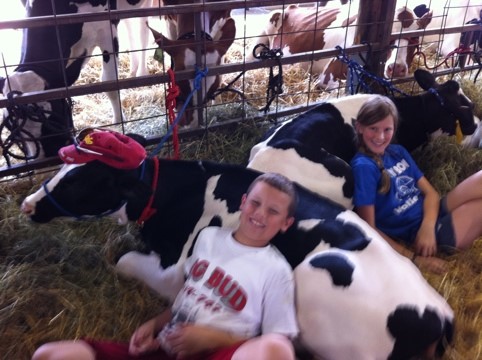Top 5 Lessons Ranches Teach Kids

Amanda Radke 1 | Oct 13, 2010 last updated July 21, 2019
Many of my friends are getting married and having babies, and it seems that whenever we get together, we always talk about the many life lessons farm and ranch kids learn that their urban peers might not be exposed to.
These conversations often make me reflect on the things I learned as a kid growing up on a cattle operation. I’ve listed my top five below.
Amanda’s top five lessons learned on the ranch:
- A little dirt, manure, calf snot, hay flecks or corn dust never hurt anybody.
- Chores mean more than helping to wash the dishes or make the bed. Chores for a farm kid mean feeding calves, opening gates, fixing fence, chopping thistles, moving and working cows, picking up square bales, and the list goes on and on and on.
- The needs of the cattle come before yours. That means the calves eat supper before you do. The calves get warm bedding in a blizzard before you get to go inside to a warm house. The barn is kept as clean as the house.
A sick calf means taking the extra time to treat them before heading to the movies. Weaning day means skipping sleepovers the night before.
- Ranches teach kids the circle of life. That means new babies are born in the spring, bulls are sold to customers, fat steers are harvested for food, and sometimes there is unexpected death loss. As Trent Loos always says, “Everything lives; everything dies. Death with a purpose gives meaning to life.”
- Ranch kids are taught to be strong, independent, self-reliant and responsible. They aren’t afraid to get dirty and work hard to get the job done. Most importantly, they are taught the importance of family. Because 97% of farms and ranches are family-owned and operated, there are many producers who work alongside multiple generations of family members. As my dad always says, “A family that works cows together, stays together.”
One more #6. Consider a Family lifestyle farm in St David Springs. Make it a family project and learning environment. Teach your children the circle of life, how to survive, be strong, independent, self-reliant and responsible. Teach them the value money, the patience to problem solve and work as a team. Consider programs such as FAA, AQHA and 4H to provide training and support from those that know the ropes.
